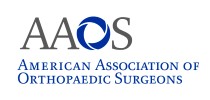 You are entering webpages belonging to the American Association of Orthopaedic Surgeons, which includes information and resources for Association advocacy efforts and the Political Action Committee of The American Association of Orthopaedic Surgeons (OrthoPAC).
You are entering webpages belonging to the American Association of Orthopaedic Surgeons, which includes information and resources for Association advocacy efforts and the Political Action Committee of The American Association of Orthopaedic Surgeons (OrthoPAC).

Orthopaedic surgeons and the physician community are continuing to face cuts to Medicare reimbursement, even as the cost of practicing medicine continues to grow. This is adding to the long-standing financial pressures physicians already face.
Under current law, physicians are the only part of the health care system that does not receive the kind of annual, inflation-based payment update provided to hospitals, nursing homes, and other health care services. The absence of an annual inflationary update, combined with statutory budget neutrality requirements, further compounds the difficulties they face in managing the resources needed to continue caring for patients in their communities.
Orthopaedic surgeons in particular face an increasingly challenging environment that is driving burnout and pushing smaller independent practices to be swallowed up by larger hospitals, health care systems and insurance companies. Accelerating vertical and horizontal consolidation in health care reduces competition and threatens patients’ access to high-quality care, particularly in rural areas and low-income and marginalized communities.
On March 8, and after months of negotiation, Congress passed an appropriations agreement that partially mitigates the 3.37% Medicare payment cut that took effect Jan. 1. The new 1.68% adjustment reduces the cut by half for the remainder of 2024. While we are never pleased with a cut, our ability to secure relief in the current political environment is a testament to the hundreds of members in our grassroots network who reached out to urge policymakers to protect patients’ access to care. We appreciate that our calls did not go completely unanswered, but to say this partial solution to Medicare’s broken payment system falls short is an understatement.
Until lawmakers address the underlying issue and implement long-term reforms, our patients will have a harder time accessing timely, quality care. AAOS will continue pressing Congress to protect patients with a permanent fix and encourages its surgeon members to join in the fight.
Resources and AAOS Letters
-
AAOS Letter of Support HR 6683
-
2023 Issue One Pager
-
AAOS House E&C MACRA Hearing Statement for the Record
-
2022 Coalition Letter to Congress regarding the 4.5% Cut
-
AAOS Letter to Congress Regarding Years-End Legislation
-
Senate MPFS Letter to Leadership
-
MACRA RFI AAOS Response
-
E/M Coalition Letter to Bera and Bucshon
-
Bera Bucshon Global Codes Letter
-
Surgical Coalition Letter to Bera and Bucshon
-
Press Release: Comments on 2023 Proposed Payment Changes
-
Comments on Proposed CY 2023 MPFS Rule
-
Comments on Proposed CY 2023 OPPS Rule
-
Medicare Physician Fee Schedule Coalition Letter 7-27
-
AMA Advocacy Medicare Principles Document
-
Sequester Moratorium Coalition Letter
-
Healthy Futures Task Force RFI Response
-
Surgical Coalition Letter on Future of MACRA
-
AAOS Medicare Cuts Advocacy Timeline
-
2023 Coalition Letter to Congress on Medicare Reform